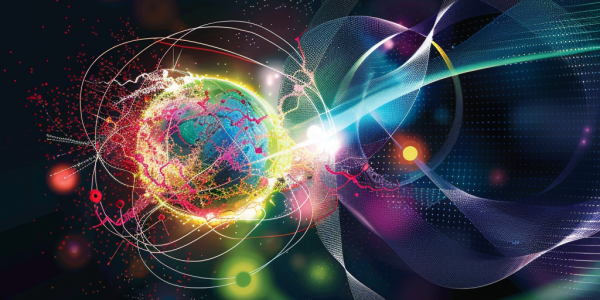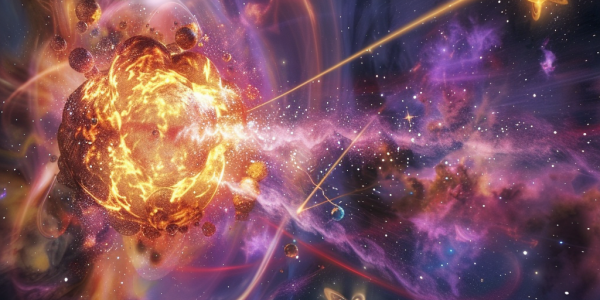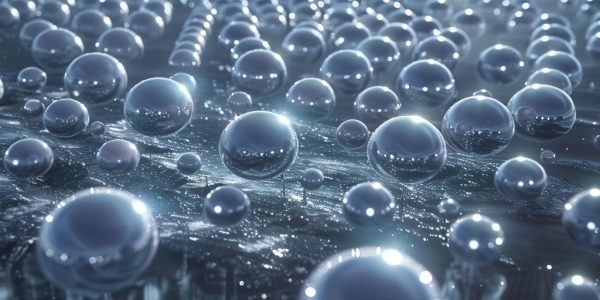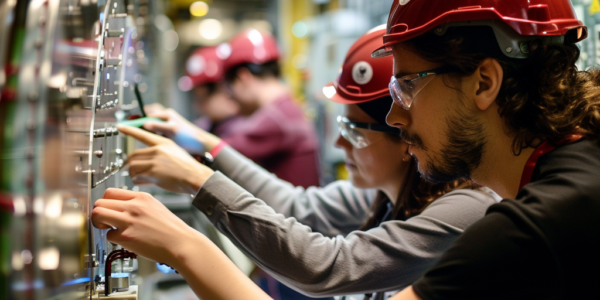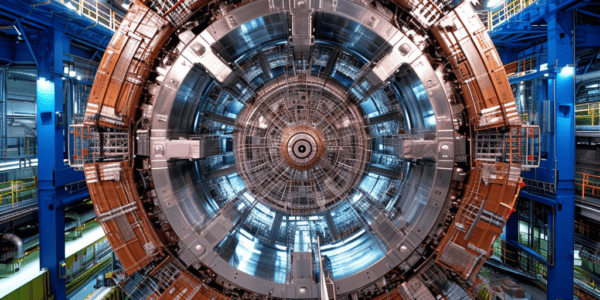Breakthrough Method Enhances Understanding of Quark Dynamics in Protons
Recent advancements in nuclear physics reveal a groundbreaking method for analyzing quark dynamics within protons, enhancing our understanding of particle interactions. Researchers from Brookhaven and Argonne National Laboratories introduced a novel approach to calculate the Collins-Soper kernel, crucial for studying quark motion. This method, effective for low transverse momentum quarks, promises to improve predictive capabilities in upcoming collider experiments, particularly the Electron-Ion Collider, which aims to explore proton spin origins.
New Discoveries of Antimatter on ISS Spark Excitement in Particle Physics
Recent findings aboard the International Space Station have revealed an unusual abundance of antimatter particles, specifically antihelium nuclei. This groundbreaking discovery by the Alpha Magnetic Spectrometer (AMS-02) raises profound questions about the universe’s composition and the elusive cosmic phenomena known as ‘cosmic fireballs.’ Researchers are investigating the mechanisms behind this antimatter anomaly, which could reshape our understanding of particle physics and the balance between matter and antimatter.
Rare Energetic Neutrinos Detected by IceCube Observatory
Learn about the trillion tiny particles called neutrinos that pass through you every second. Discover how IceCube Neutrino Observatory detected rare energetic astrophysical neutrinos, bringing researchers closer to understanding their production. With 5,000 sensors observing a gigaton of ice under the South Pole, IceCube plays a crucial role in large neutrino experiments.
CERN to Supercharge Large Hadron Collider for New Physics
CERN’s Large Hadron Collider is getting a major upgrade to facilitate more advanced tests and experiments, with the US Department of Energy’s SLAC National Accelerator Laboratory playing a crucial role. The upgrade aims to probe the Higgs boson and explore physics beyond the Standard Model, increasing the likelihood of detecting rare particles and Higgs bosons. SLAC’s role involves upgrading the ATLAS detector’s Inner Tracker with tiny silicon sensors to enable more precise and effective detection and analysis of collision events at the HL-LHC, expected to open new frontiers in particle physics.
CERN designing supercollider to push boundaries of modern physics
CERN is designing a new supercollider called the Future Circular Collider (FCC) to push the boundaries of modern physics research and perhaps discover the true nature of our mostly invisible universe. The new collider, expected to be operational by 2045, will be 8 times more powerful than the LHC and could help solve mysteries about the nature of our universe, such as the true nature of dark matter and the first instant after the Big Bang.
Physicists Make Major Breakthrough in Understanding Proton Structure
Physicists have made a major breakthrough in understanding the structure of the proton, shedding light on the forces that govern subatomic particles. A recent study, published in Reviews of Modern Physics, has revealed new insights into the mechanical properties of…
Large Hadron Collider Discovers Rare Higgs Boson Behavior
The world’s biggest proton-smasher has revealed a new, rare behavior of the famed Higgs boson. Detectors at the Large Hadron Collider spotted the particle decaying into a photon and a ‘Z boson’. This type of Higgs boson decay was predicted…

